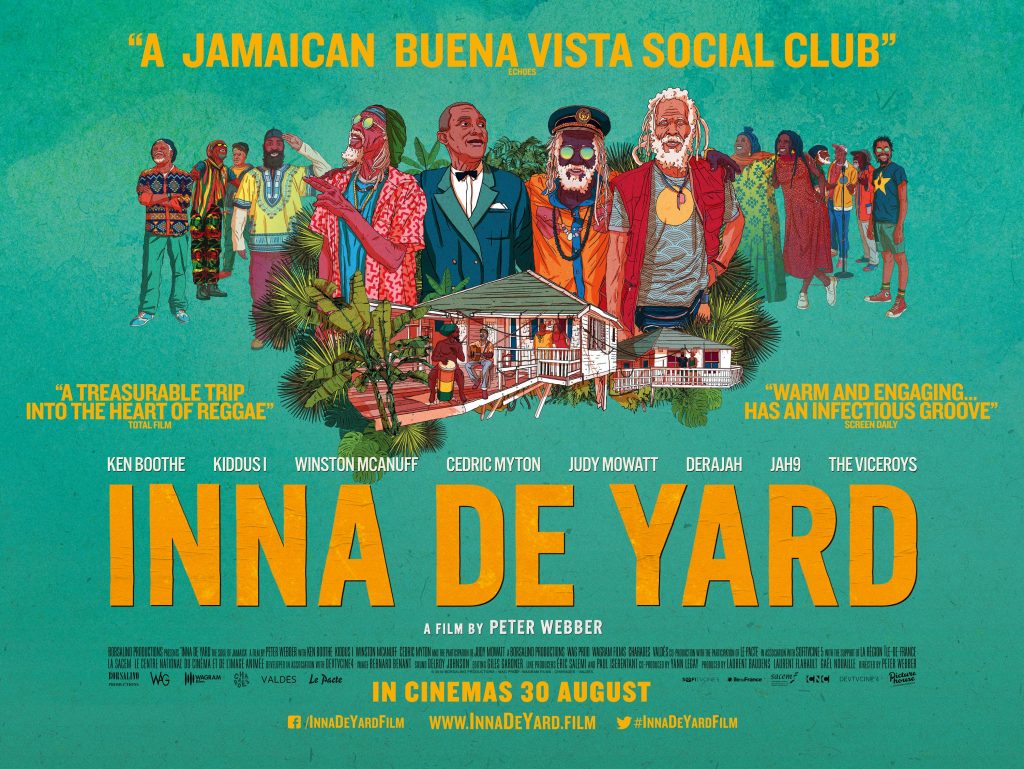
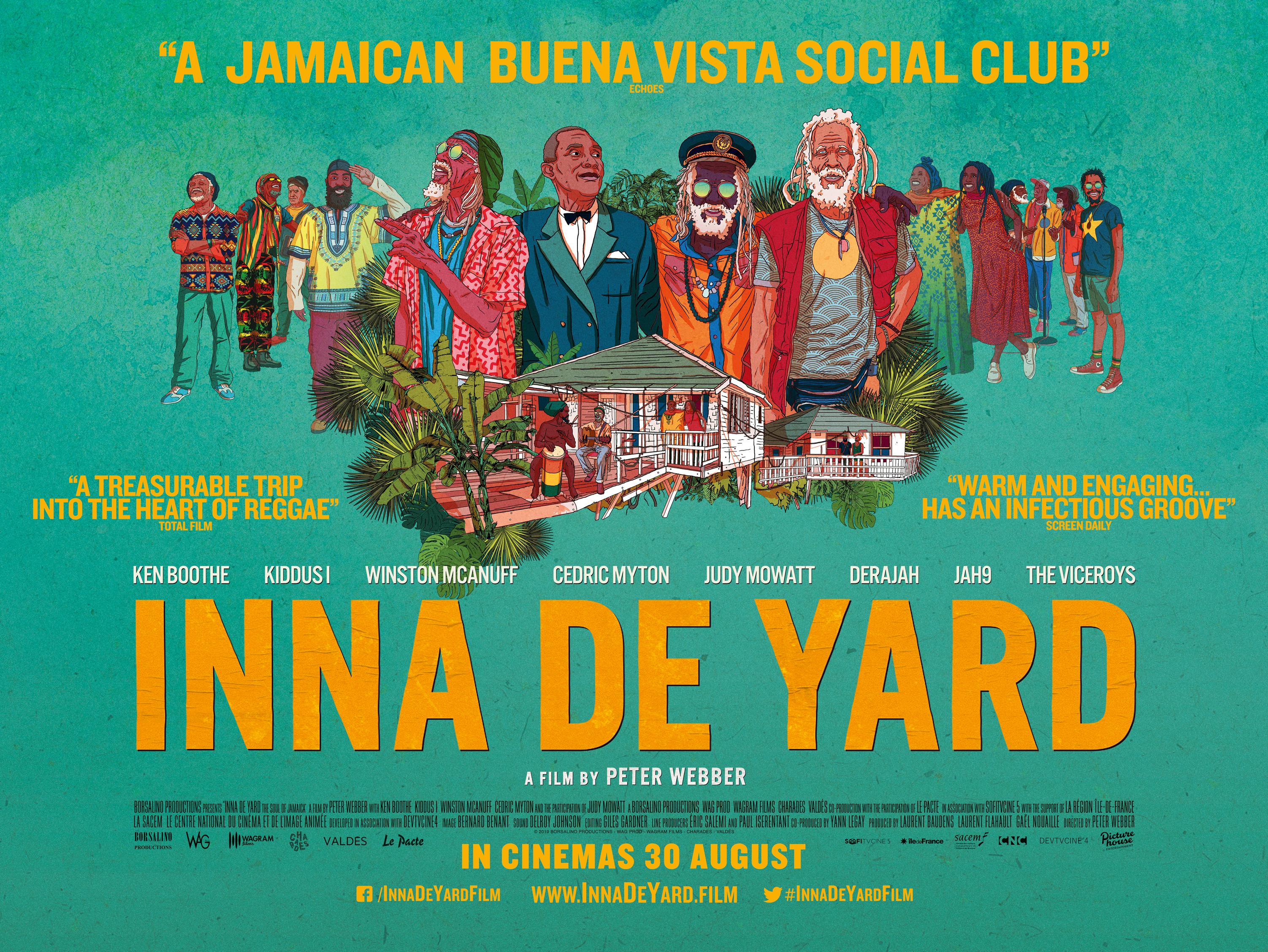
At A Glance
Intimately conveyed by those at forefront of a significant time in Jamaican history, the birth of Reggae, director Peter Webber celebrates a country, culture and characters as he dives deeply into the roots of reggae and its artists.

Film Details
Directed by Peter Webber
Written by Peter Webber
Released by Picturehouse Cinemas
2019, 99 minutes
In UK Cinemas 30th August
Cast
Winston McAnuff as Himself
Jah9 as Herself
Ken Boothe as Himself
Derajah as Himself
Kiddus I. as Himself
Judy Mowatt as Herself
Cedric Myton as as Himself
Inna de Yard - UK Premiere
Somerset House, London 21st August Film4 Summer Screen closes with the UK Premiere of Inna De Yard, the …. Documentary celebrating the lives and evolution reggae music. Attending the red carpet event were director Peter Webber, accompanied by reggae recording artists Winston McAnuff and Jah9. Premiere Scene’s Claire Bueno found her own rhythm as she was ever present to record her own interviews for posterity.
Peter Webber interview
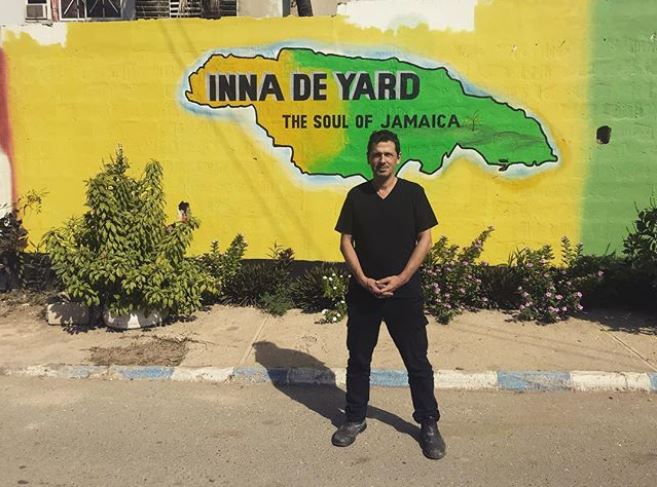
CB: What I loved about this film when I saw it was even though the concept is about reggae this is very much a human interest story and celebration of a culture and a country isn’t it?
PW: Yeah completely, I mean you know the film wasn’t like that when I made my first cut because I realised then I had made a film for me as a reggae fan, fanatic, obsessive, and so I went back into the cutting room again and I just really worked on the emotions and the characters and changed the music a bit, because I wanted to make a film that doesn’t just speak to hard core reggae fans. I think even if you are uninterested in reggae there’s still good strong emotional journey in the film. It’s about people surviving against severe adversity at the end of the day.
CB: And talking about adversity really, the whole concept that manifests from the doc is the cultural significance that reggae brought, and the voice that it gave really, wasn’t it?
PW: It’s amazing that that tiny little island in the Caribbean, and a tiny, small number of people made music that at one point in the late 70s, 80s went round, and you can argue that Bob Marley conquered the world you know, and that energy is still there because the music comes from a very real place, and it’s about spirituality, and it’s about political struggle, and it has a warmth and humanity about it. And it is not manufactured pop, not that there is anything wrong with manufactured pop, but it has a reality about it, just in the same way we may listen to blues from years ago, you can listen to reggae, it’s timeless.
CB: Absolutely, it absolutely is, I mean you touch on a bit of Ska and rocksteady, but really reggae is the core of this film.
PW: Yeah, I mean listen, I love Ska and rocksteady but to be there like let’s say a child and an adolescent and reggae is when it grew up. Yeah and it got a conscience and it grappled with reality. I think reggae is less of a pop form and it’s got more depth to it, for me.
CB: And of course what’s wonderful about this documentary is a collection of all these reggae legends all working together, jamming together and with a new generation…
PW: Yeah completely. You know for a start, seeing these guys, many of whom are in their 70s they’re still going, they’re survivors. But they are very conscious about working with younger musicians and you’re going to see tonight at the premiere, we’re at Somerset House. Jah9 who is in the film and Winston (Mcanuff) singing together and really the two the old and the new. She’s part of the next generation and in the film she sings with Judy Mowatt, there is an amazing duet.
CB: Yeah that’s a really powerful moment in the film isn’t it?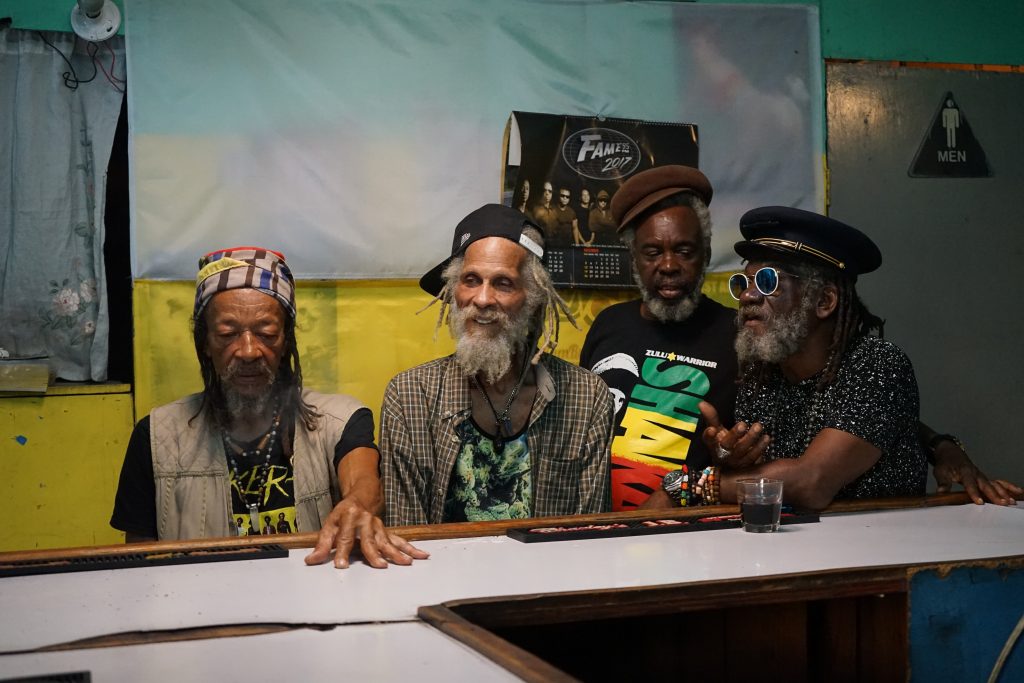
PW: Yeah it was really important to me when I was looking at the film I realised at some point, you know because women are so important in the history of Jamaica, and the history of the music, erm that we had to do that. And it took a while to convince Judy, but I’m glad we got her in the end.
CB: And finally with any documentary you have certain idea, you obviously had a plan, I know you said there were changes, but did other threads manifest that you didn’t expect to uncover.
PW: Yeah I mean the thing is yeah you have a plan, you need a plan, but it’s like my favourite Mike Tyson quote, ‘Everyone has a plan until you get punched in the face,’ (Laughs). And every time you shoot something, you’re punched in the face you know, but if you look at the original outline that I wrote, the treatment that I wrote, and what you have now is very similar. You make some discoveries, some characters work better than others, blah, blah, blah, but you have to be alive to what’s going on while you’re there, but yeah no, it’s the film I wanted to make.
Jah9 Interview
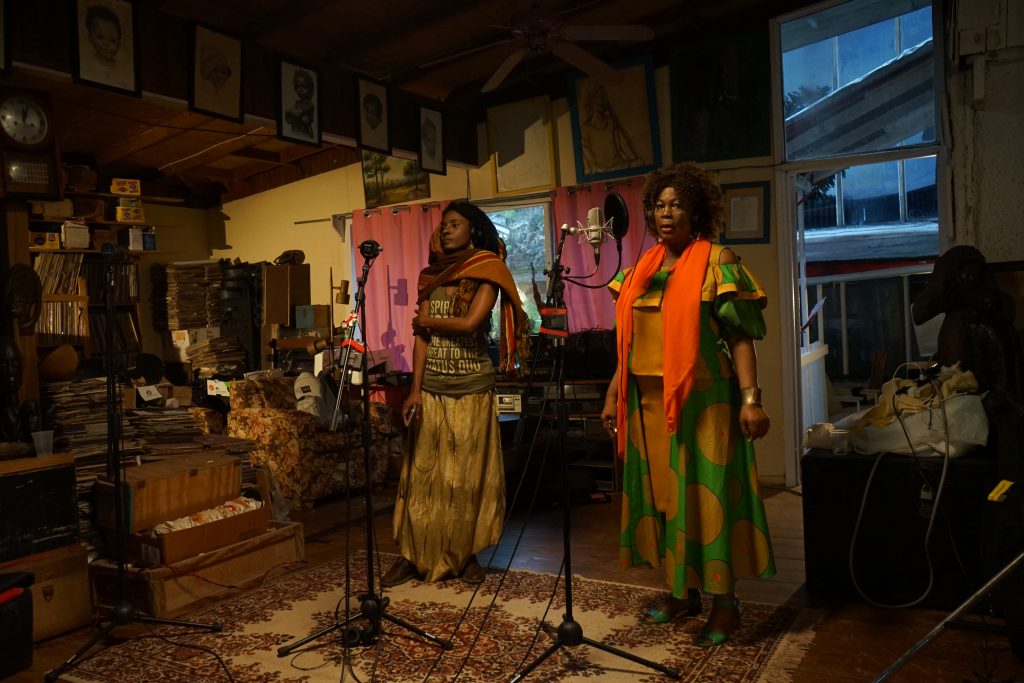
CB: I was saying to peter that moment that we see both of you on screen (Judy Mowatt and Jah9) it is such an incredibly powerful moment, it must have been wonderful for you as well to have this captured for posterity on camera?
J9: I definitely think so, I haven’t seen the film as yet. But I think I really appreciate the sincerity in which he (Peter Webber) went through the process and let himself fit into the process and really communicated it well, so it is definitely a good thing to be a part of.
CB: What we will see from the film is the social political conscience of reggae, can you tell us a little bit more about that and why reggae is so important to you?
J9: You said it all, you said it all that really is what it is. And it’s not just for Jamaica, but it’s for the entire diaspora and the entire world because regardless of your background people face struggles, you know. Struggles may look different and translate differently, but when it comes to needing to feed on something that’s positive and uplifts you that’s when reggae music comes in, and that’s why it will always be relevant.
CB: And what’s positive as well that we will see from the film is this celebration of Jamaica and what a beautiful country it is, was that important for you?
J9: Yes, I mean it’s inevitable because it is beautiful and a beautiful part of Jamaica is the people of Jamaica, you know. It’s country people, its roots people, it’s not the a-typical bits that are you know, American influenced and fads and trends, its roots. That film could have been taken 50 years ago and it’s true to the essence of how roots music is made so I really appreciate that, and I haven’t even seen the film, but seeing and knowing what Peter pulled from, I know it’s going to be special.
CB: Oh it is, and the wonderful thing when you talk about the roots is you’re working and recording with the icons the people that the roots of reggae came from, for you as a recording artist, how significant was that for you?
J9: For me as a lover o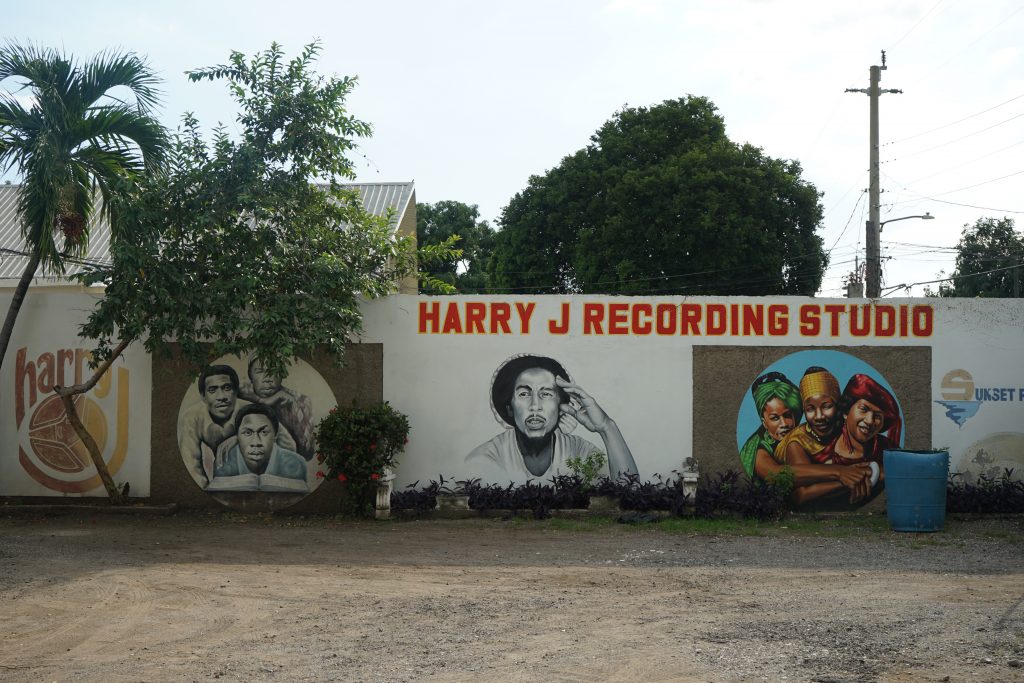 f roots music it’s extremely significant, because I mean there are a lot of the younger people in Jamaica who don’t even celebrate these people as much. So it’s when they come to Europe and the UK that they really get celebrated, I remember the first time I came on the road with Cedric Myton, and Chinna Smith and I mean when I saw how much they were being celebrated I felt so good because these people are so dear to my heart, and in Jamaica some people may not even know who they are. So hopefully a film like this will help to remind you people in Jamaica even in particular that hey your history is so important and so vast, and so much than just the past five years, you know.”
f roots music it’s extremely significant, because I mean there are a lot of the younger people in Jamaica who don’t even celebrate these people as much. So it’s when they come to Europe and the UK that they really get celebrated, I remember the first time I came on the road with Cedric Myton, and Chinna Smith and I mean when I saw how much they were being celebrated I felt so good because these people are so dear to my heart, and in Jamaica some people may not even know who they are. So hopefully a film like this will help to remind you people in Jamaica even in particular that hey your history is so important and so vast, and so much than just the past five years, you know.”
CB: And you are the future of reggae what voice have you got, what’s significant for you?
J9: For me it really is that continuity, it’s making sure that whatever changes even though technology changes and the sounds of the music may evolve, the source of the music remains the same and his Imperial Majesty has an influence throughout, is going to always be present and righteousness and justice, and that these messages even though they evolve they are still present because that’s what makes it a timeless music.
Winston McAnuff Interview
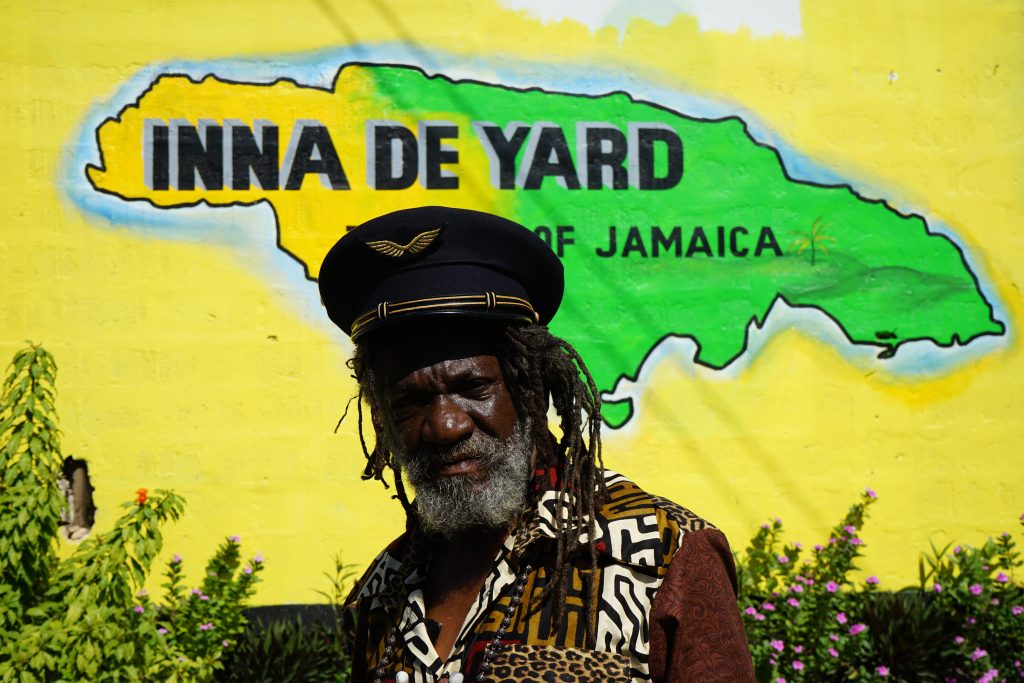
CB: This documentary must be a marvellous opportunity for you all to get together again?
WM: Yeah because many of the guys like Cedric (Myton) their careers were like stagnant, so the Inna De Yard I saw it as a medium and I said to Cedric, “Cedric I think you should do this little project. And he said, ‘Winston’. I said, no do this project because I think if you do it people are going to start asking for your group, your (The) Congos,” and that’s what happened. From the first tour, the first tour they actually break up because, some people said, “Yo where’s the group, oh man we want to do a tour” (laughs) it was a fight, it was a fight to keep the thing together because everybody want to pull the thing in different directions (laughs). But we managed to hold it in because Cedric is like my father, grew up with him and everything so you know.
CB: The film is a celebration not only of reggae music, but of a culture and the country was that important for you to have that fairly represented in the documentary?
WM: Of course because many people they live in Jamaica and they’ve forgotten certain things, or they live in Jamaica and they have never seen certain things that’s in the film, even me. I see certain things, what I never know this place and it was near, like where Kiddus (Kiddus I) was by the river, where we see that river, I say, “Where the fuck is this?” because I ashamed because I’m Jamaican. There are so many undiscovered secrets there.
CB: With reggae music it comes from such a place honesty, sincerity and truth and with making the documentary as well we see a lot of truth behind all the lives you have lead and yours in particular is a heart-felt story, did you have any hesitation about being so open on camera?
WM: No it’s just speaking about my son you know, it’s something that I don’t wish for everybody because it bring me to a suicidal state and one point, but if I have to talk about it, talk about it, out of respect for my son, because he was an angel you know and will always be for me.
CB: And it’s important to acknowledge and celebrate a life.
WM: It was Peter told me not to put the headstone until he came to do my part, you know. But every time I see it I like when I’m in the movie
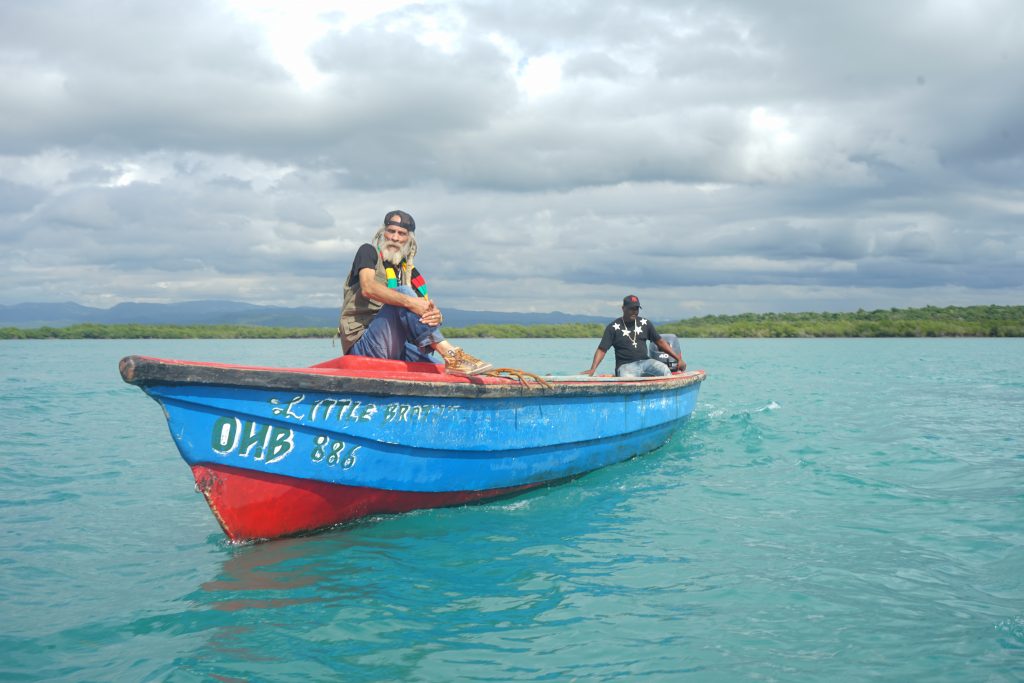
like, I find it hard not to, I was alright all along but when that comes some more I just feel like crying.
CB: And that’s understandable.
WM: It’s normal.
CB: And you’re performing with a lot of young artists as well.
WM: It’s very important to pass.
CB: Exciting to pass on the baton?
WM: Yes of course, cos how are they gonna get experience, my brother used to tell me this thing, people going for work in London and every time they go to say, “You have to have two years’ experience, but who’s gonna give you the experience, (laughs) you’ll never get the job. No but you’ve got to have two years’ experience.” But how you going to get the experience if nobody is giving you the chance to get it (laughs).
CB: And have you got one lovely experience that you’ll take away with you from being a part of this film that you can share with us?
WM: From being a part of this film? Well, one of the beautiful things that am Horace Andy is the Godfather he gave me the first national tour, so between me and you if it wasn’t for Horace Andy this wouldn’t be possible, you know so I paid him back by inviting him to come to the Olympia the other day, then he say after he came and everything. He say, “Argh but Winston you left me out of the film,” (laughs). You can’t do too much (laughs). You can’t win (laughs).
“It’s about people surviving against severe adversity." - Peter Webber
Inna de Yard - Official Trailer
Claire Bueno
Claire Bueno is a film journalist, presenter and interviewer, having moderated BAFTA, Royal Television Society (RTS), Women in Film and Television (WFTV), and Apple Store Q&As and hosted Comic Con panel talks. Claire is the founder of Premiere Scene Magazine and has had the privilege of interviewing esteemed artists including Tom Cruise, George Clooney, Brad Pitt, Sir Anthony Hopkins, Sigourney Weaver, Emily Blunt, Samuel L Jackson, James Cameron and Andy Serkis.
As a media coach Claire works with leading personal publicists, HBO, Netflix, Sky, ITV, Penguin Random House, the BFI, DDA, MacMillan and Premier, offering practical coaching sessions and safe environment for talent to perfect their interview technique before facing the press. She has extensive experience working with emerging and seasoned professionals and where English is not their first language.
Additionally, Claire is the producer of the critically acclaimed feature documentary CLEANIN’ UP THE TOWN: Remembering Ghostbusters and the upcoming TOO HOT TO HANDLE: Remembering Ghostbusters II.